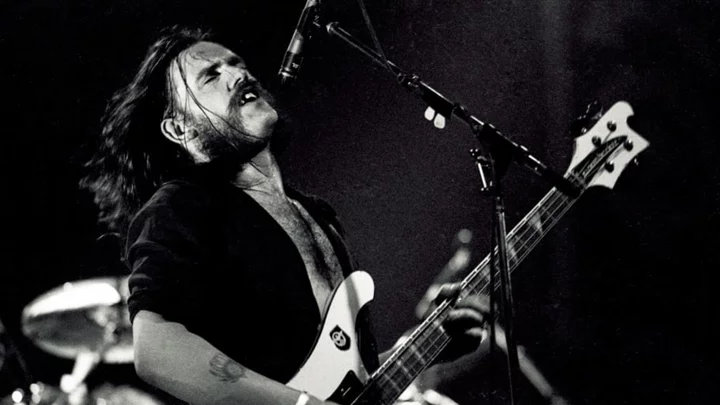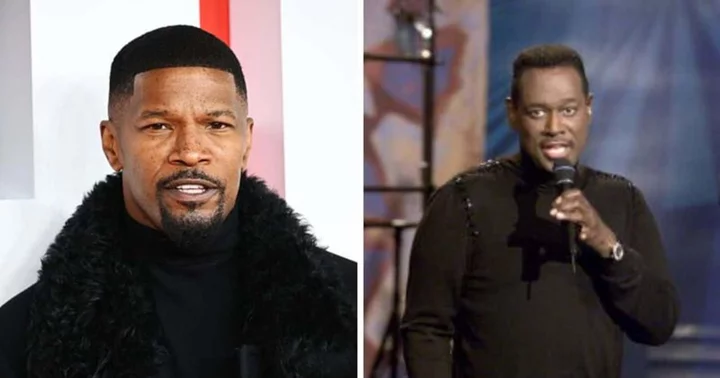Some musicians like to conceal messages or images in their album covers; others prefer to leave cryptic messages behind in their album‘s liner notes (as Taylor Swift once did). Some, however, may have taken a more subtle approach: Through a recording technique known as “backmasking,” some of the most iconic bands in music history are rumored to have left secret messages inside certain songs.
With backmasking, you usually can‘t hear the hidden message unless you play the track in reverse (it works best if you use a turntable). While you might pick up on plenty of Easter eggs, sometimes it’s like an audio Rorschach test too, in that you could be hearing things that aren’t actually there.
From urban legends to accusations of devil worship and beyond, the backmasked songs featured below have given rise to all kinds of fun (and occasionally ominous) theories.
1. and 2. “Revolution 9” and “I’m So Tired” // The Beatles
There’s an infamous music conspiracy theory that Paul McCartney died in a car accident in 1966 and was replaced with a doppelgänger. Some fans point to The Beatles’ Yoko Ono-influenced, avant-garde track “Revolution 9” from the White Album as a major “clue” into the validity of this claim.
If you play the song like normal, you can hear John Lennon’s voice repeat the words “Number 9” over and over again in the intro. However, if you play it backwards, some believe they hear him saying “Turn me on, dead man” over the jumbled soundscape.
This isn’t the only track from The Beatles that supposedly includes backmasking. At the very end of the song “I’m So Tired”—which incidentally, is also from the White Album—Lennon seems to be speaking in gibberish, but if you play it in reverse, it almost sounds like he says, “Paul is a dead man, miss him, miss him, miss him.”
Of course, the “Paul is Dead” rumor is just that, as the real Paul McCartney is alive and well and still making new music for fans all around the world. Still, that hasn’t stopped McCartney from addressing the urban legend directly; in 1969, he told LIFE magazine that “perhaps the [rumor] started because I haven’t been much in the press lately.”
3. “Stairway to Heaven” // Led Zeppelin
Rumors of Satanic worship have dogged Led Zeppelin for decades, thanks in large part to guitarist Jimmy Page and his well-known interest in occultism. (Page famously owned an occult bookstore in London in the early 1970s, as well as Boleskine House, the Scottish manor once occupied by Aleister Crowley, the famed British writer who was once part of Hermetic Order of the Golden Dawn, a secret society focused on mysticism.)
Although there’s no evidence that Page made a deal with the Devil, the guitarist never flat-out denied the Satanist claims, either. “I don’t really want to go on about my personal beliefs or my involvement in magic,” Page once told Rolling Stone. “I’m not interested in turning anybody on to anybody that I’m turned on to. If people want to find things, they find them themselves.”
True or not, those rumors helped fan controversy around one of the band’s most legendary songs, “Stairway to Heaven.” In 1982, televangelist Paul Crouch claimed that there were hidden messages in it about the Devil, which could only be heard by playing the song backwards. According to Crouch, you can hear lead singer Robert Plant croon out the worst of it starting around the 4:20 mark: “Here’s to my sweet Satan, the one whose little path would make me sad, whose power is Satan, he’ll give you, he’ll give you 666, there was a little tool shed where he made us suffer, sad Satan.”
The band has long denied that there was any backmasking on the track, with Plant even going on the record to debunk the claims directly. “To me it’s very sad, because ‘Stairway to Heaven’ was written with every best intention,” Plant said in a 1983 interview with Musician magazine. “And as far as reversing tapes and putting messages on the end, that’s not my idea of making music.”
4. “Nightmare/The Dreamtime” // Motörhead
Between frontman Lemmy Kilmister’s devil-may-care attitude and the English band’s blistering hard rock sound (which served as a precursor to NWOBHM, the new wave of British heavy metal), Motörhead has long had a rough-and-tumble reputation. There are even accusations that the band placed hidden messages in their songs—namely on the track “Nightmare/The Dreamtime,” off their ninth studio album, 1916.
The song kicks off with some jumbled growling from Lemmy, but if you play the song in reverse, you can hear him spit out the following message with some real ferocity: “Now tell me about your miserable little lives. I do not subscribe to your superstitious, narrow-minded flights of paranoia. I and people like me will always prevail! You will never stifle our free speech in any country in the world.”
Although the rumored backmasking on the track wasn’t officially confirmed by the band, it’s clear and noticeable—especially compared to some other songs featured in this list. Some sources suggest that the backwards verse was supposedly aimed at the Parents Resource Music Center (PMRC), which was trying to censor heavy metal and other music deemed offensive back in the 1980s. In one video clip, Lemmy compares the PMRC to McCarthyism, adding: “People are scared of them, but what no one seems to realize is if you wouldn’t be scared of them, they couldn’t do anything.”
5. “Better by You, Better than Me” // Judas Priest
Speaking of the NWOBHM, Judas Priest is another British hard rock band that technically predates it but helped inform the sound. The group has made headlines for more than just their influence in metal, however: Back in 1990, they were involved in a lawsuit where the issue of backmasking and subliminal messaging in songs was the central focus.
The suit alleged that the band and their record label, CBS, were responsible for a shooting incident that occurred in Sparks, Nevada, in December 1985, wherein two young men—18-year-old Raymond Belknap and 20-year-old James Vance—attempted death by suicide using a 12-gauge shotgun.
Belknap died instantly, but Vance survived (although he suffered from extensive facial injuries and died three years later from a drug overdose). In the suit, their families claimed that there were subliminal messages—including “Let’s be dead” and “Do it”—in the band’s cover of the 1969 Spooky Tooth song, “Better by You, Better than Me,” which is what allegedly prompted Vance and Belknap to enter into the suicide pact.
After reviewing the song (and playing it both backward and forward at varying speeds), audio engineers determined that there were no subliminal commands in it and the case was eventually dismissed. “It was absolutely ridiculous. It really was,” frontman Rob Halford later told Yahoo Music in 2015. “We love our fans. We would never put anything in our music with the intent of harming them.”
6. “Empty Spaces” // Pink Floyd
Pink Floyd is known for experimental compositions and thought-provoking lyrics, so it’s not really much of a stretch to imagine the prog-rock band might have tinkered with backmasking in songs, too. Keen-eared listeners searching for the hidden meanings in Pink Floyd songs don’t have to search too hard: Just look to the band’s 1979 rock opera, The Wall, and specifically, the track “Empty Spaces,” which fans claim features a particularly surreal secret message.
If you play it backwards, you can hear bassist Roger Waters pranking the band’s followers with: “Hello, Looker. Congratulations, you’ve just discovered the secret message. Please send your answer to Old Pink, care of the funny farm, Chalfont.” It even includes producer James Guthrie interrupting with, “Roger! Carolyne’s on the phone!” at the very end—a reference to Carolyne Christie, Roger Waters’s wife at the time of the recording.
7. “665” // Soundgarden
In 1988, Seattle grunge band Soundgarden released their debut album Ultramega OK, which poked fun at the supposed Satanic themes in rock music, namely with the backmasking on the track “665” (a parody of the number “666,” which is regarded as the “number of the beast”).
If you play the song in reverse, you can hear frontman Chris Cornell sing: “Hail Santa! I love you, baby. Oh Santa, got what I need … my Christmas king. Santa is my king! I love you, Santa baby. Got what I need.” In fact, Cornell even joked about the parody in an interview with The Guardian in 2009. “People asked—in all seriousness—‘Are you guys Satanists?,’” he quipped.
8. “Cut Up Angels” // The Used
In 2004, emo rock band The Used released their second album, In Love and Death. Heavily influenced by frontman Bert McCracken and the tragedies happening in his life at the time (his ex-girlfriend, who was also pregnant with his child, died from a drug overdose during the album’s production), the record was nonetheless a hit and went certified platinum.
In Love and Death is also notable for featuring the song called “Cut Up Angels,” which some believe backmasking at the very opening of the track. When you play it backwards, you can supposedly hear McCracken say, “Happiness is a warm gun, yes it is … ” which is a reference to yet another song from The Beatles’ White Album.
9. “300 Mhz” // At The Drive-In
Post-hardcore band At The Drive-In released Vaya in 1999, and the second-to-last track on the seven-song EP allegedly features some very creepy hidden lyrics disguised via backmasking.
Some folks who have listened to “300 Mhz” backwards claim they can hear lead vocalist Cedric Bixler-Zavala start to belt out those eerie words around the 94-second mark: “... your enamel, made no reflection in our mirror, coughing up the coffins, cotton-candy coated teeth, these pockets were clinching all filled with teeth, amnesia proletariat ... in the unlikely event that sarcasm is an unfitting dress, amnesia proletariat ... ”
10. “Hell Awaits” // Slayer
As one of the “Big Four” of thrash metal bands (alongside Metallica, Anthrax, and Megadeth), Slayer is definitely capable of conjuring up some real fire and brimstone in their music. But according to some listeners, it’s the title track off the band’s 1985 sophomore album, Hell Awaits, that really plays into all that Satanic Panic paranoia from the 1980s.
If you listen to it normally, the first minute or so of the song sounds garbled, almost like there’s some demonic muttering going on. When that part is played in reverse, it sounds like the phrase “Join us!” is being chanted, over and over again and with increasing intensity. You can also hear audible wails in the background, as if someone is being tortured, before it all fades out and the song officially kicks off in all of its thrash metal glory.
This article was originally published on www.mentalfloss.com as Hail ... Santa? 10 Songs That That May (Or May Not) Include Hidden Messages.









